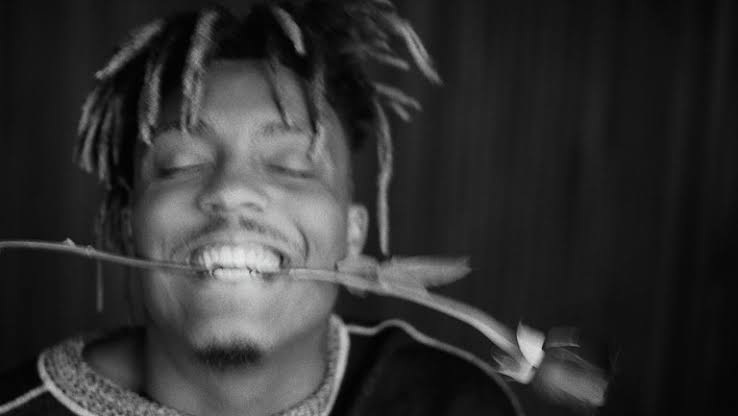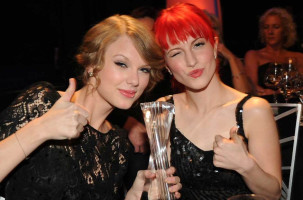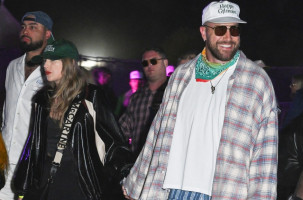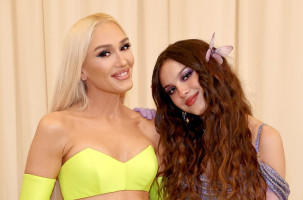It will never stop being mind-blowing: those mornings on which you wake up and something pops up in your timeline that's a gut-punch of a breaking story -- with such scant detail, because it’s so new, that at first you desperately want to doubt it.
Sunday morning, for me, it came in the form of a simple “RIP Juice WRLD” from Rolling Loud. Whaaaa? He was supposed to play Rolling Loud Los Angeles only next weekend. Surely someone was messing with us? Then, No Jumper. Then Complex. It didn’t take long to find that the story -- that the charismatic young superstar born Jarad Higgins had died soon after suffering a seizure upon disembarking at Chicago’s Midway Airport -- had broken on TMZ, a fact that sadly made it more likely true than not. Still, initially there were doubts among fans (more than a couple of whom reacted to early posts with comments of “sike!”) hoping against hope that the news was true. Surely not again.
But here we are. Once more thrown into the too-familiar experience of mourning a hip-hop supernova, whose muse was despair and who flirted with mortality in his music, and whose life ended the obscenely young age of 21. A little more than two years ago it was Lil Peep. Eight months later, XXXTentacion, at only 20. Juice himself paid tribute to his fallen angst-rap contemporaries with “Legends" in 2018, and in this year’s Death Race For Love Tour, that song was accompanied by a video tribute to X, Peep and others that have passed far too soon: Mac Miller, Nipsey Hussle, Amy Winehouse. Heartbreakingly, Juice has joined them. “What’s the 27 Club?” he sang in “Legends." “We ain’t making it past 21.” Juice only turned 21 six days ago. As a tragedy, it's beyond eerie.
That Juice's story ended upon returning home to the city he made proud is at least poetic. The kid from the Chicago suburbs helped add a new face and sound to the proud legacy of Second City hip-hop, and there are few greater examples of how quickly a star can be born in the streaming era. In a dizzying matter of months beginning in mid-2017, Juice WRLD went from serious online traction with the 9 9 9 EP and the initial release of soon-to-be smash “Lucid Dreams” in 2017, to the buzzy end-of-year Nothing’s Different EP and “All Girls Are the Same,” his first single, bolstered by a video from Lyrical Lemonade’s Cole Bennett, one of Juice’s greatest champions.
Ultimately in the spring of 2018 came a headline-making 3 million dollar deal with Interscope Records. There were vocal doubters at the time, but in retrospect, Aaron “Dash” Sherrod, Juice’s A&R told Meghan Garvey in a Billboard cover story earlier this year, “Now I think people might’ve signed him for 6 million.”
They were right. Juice exploded, and “Lucid Dreams” in particular was enormous. Debut album Goodbye and Good Riddance was certified Platinum by the RIAA, and sophomore solo LP Death Race For Love became his first No. 1 album on the Billboard 200 earlier this year. He quickly became the latest and largest face not only of “SoundCloud rap” (Juice was the site’s top-streamed artist of 2018) but with the passing of Peep, the leading progenitor of so-called “emo rap," a term which Juice told Garvey he wasn’t particularly fond of: “Any rap that’s talking about what you’re going through is ‘emo rap,’” he said.
Judging from many of the lyrics, usually delivered in infectious, singsong melodies, what he’d gone through were plenty of life’s slights and setbacks (“Empty,” “Flaws and Sins”) dulled by drugs (“Lean Wit Me," “Wasted" with Lil Uzi Vert), railing against enemies (“Armed and Dangerous”) and filtered through an unmistakably male gaze (“Hemotions”). It’s that latter fact and the way it often manifested itself in targeting women as the source of his pain that led critics to call Juice out for trading in the sort of misogyny that has long accompanied that which is deemed “emo.”
“Juice WRLD and SoundCloud Rap’s Toxic Masculinity” headlined Stereogum in June of 2018, soon after the ascent of "Lucid Dreams," one of several think pieces on the topic. And this was before he unleashed d--k-as-a-weapon lyrics in this year’s “Syphilis” and another giant hit in the irresistible “Robbery," in which he declares, “She told me, put my heart in the bag and nobody gets hurt/ Now I’m running from her love.”
The criticism was understandable. Go to a Juice WRLD show, though, as I did for Billboard earlier this year, and there was nearly a 50-50 gender split among fans -- the young women were are rapt as the dudes -- and as theatre, its aesthetic was a dazzling video game come to life, far more warm and inclusive than objectifying or toxic. Bleak as many of his songs could be on their face, hope is what Juice aspired to leave as a takeaway, and he closed the show by exhorting the largely Gen Z crowd: “Follow your dreams, and you will end up where you want to be in this life!”
Being misunderstood is the currency of many a young male artist, but in Juice’s case, you do sense that there was more to him than the often glum public image presented. I never met him, but Cole Bennett, shortly after shooting the “Robbery” video (in which a Hennessy-toting Juice crashes a goth wedding and literally scorches the earth), told me that of all the talent he regularly works with, Higgins was among the most inspiring. And Garvey, in her cover feature, admitted surprise in finding Juice to be “warm, goofy and quick-witted.” Surely we’d only just begun to know him.
If detractors found him solipsistic or too melodic to be “real rap” -- the gigantic numbers didn’t lie, nor did the very real, palpable bond Juice made with young fans. This year had been massive for him -- he had recently returned from Australia and New Zealand, with Rolling Loud LA set for next weekend, and a year-end date scheduled at Minneapolis’ EDM-focused Snowta festival, and a third album reportedly in the works. Collaborations with RM and Suga of BTS (“All Night”) and Ellie Goulding (“Hate Me”) as well as his friend Ski Mask the Slump God ("Evil Twins") and fellow star Travis Scott (“No Bystanders” from Astroworld) had already given the lie to the idea that Juice was a one-trick-emo-rap-pony.
Of course next-gen hip-hop is a mercurial world, in which a new sensation seems to be crowned nearly every month -- where sustaining a buzz and a career of any real length is often a much tougher task than that initial, viral break -- so who knows what Juice had ahead of him. But what a loss this is. There will always be a place, a need, for heart-on-the-sleeve artists, and few have recently offered that more compellingly than Jarad Higgins. There will be those who say, as they did after Peep and X, that something like this was “predictable." That Juice was a tragic headline waiting to happen.
Not only are those comments callous and unhelpful, but they ring defeatist to me. These losses can’t become commonplace, and as easy as Twitter makes tossing off a condolence, our reaction to them can’t be rote. Apart from his friends and family who are grieving, spare a thought for the millions who adored him, connected with him. You have to wonder what these compounding losses do to young psyches. Hopefully we won’t have to write about another one for a long time.
“They tell me I’m a be a legend/ I don’t want that title now/ ‘Cause all the legends seem to die out/ What the f--k is this ‘bout?”
Rest in peace, Juice.








